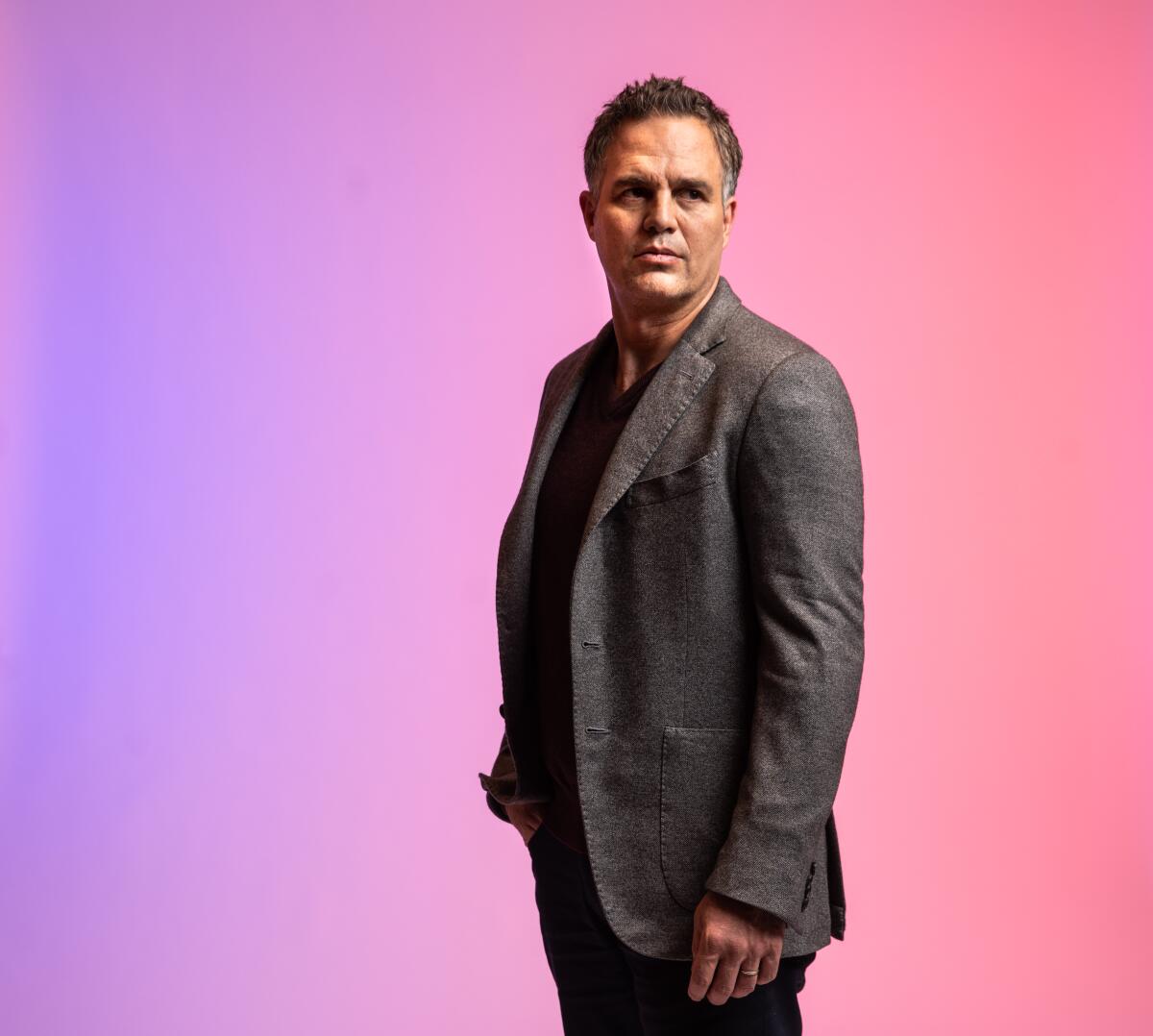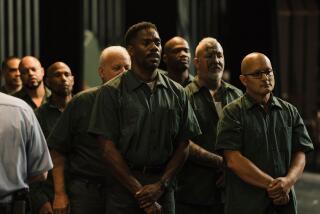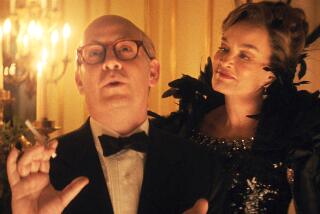Mark Ruffalo wades into ‘Dark Waters’ for a different kind of legal drama

Mark Ruffalo gets excited when talking about the real story behind the film he has shepherded into existence, “Dark Waters.” The story centers on lawyer Rob Bilott, whose specialty had been defending corporations, especially chemical manufacturers. Shortly after making partner at his firm, he was drawn into a case that put him squarely on the other side.
“The lawyer knew — he knew! — what was happening!” Ruffalo says of Bilott’s opposing counsel. “He warned them, ‘This guy is not going away. He is one of us; he is a corporate defense attorney, he is not like any of the other guys we are dealing with.’ And they were like, ‘We’ll bury him! Send him everything!’ The hubris. They treated him like another plaintiff attorney, but they [messed] with the wrong guy this time.”
Ruffalo learned of Bilott from a 2016 New York Times Magazine article, ‘The Lawyer Who Became DuPont’s Worst Nightmare.” Bilott led a nearly two-decade-long fight that upended his life and tried to hold a chemical giant to account for decades of dumping toxic waste. Ruffalo developed and produced the film, bringing on the writers and director Todd Haynes to make a legal drama focusing on the character’s interior life, rather than courtroom tropes.
“It’s not phrased this way, but it’s a spiritual journey,” says Ruffalo, who plays Bilott in “Dark Waters.” “He’s getting pay cuts. His chance of advancing in that society is suddenly limited. He’s all alone. He’s got stress at home, stress in the community he’s trying to protect. It’s an inner, righteous journey very few human beings are willing to take.”
The three-time Oscar nominee says Bilott was often on set, and the actor would even have him read dialogue aloud to help capture his cadence, his essence.
“Rob’s a very guarded person. He moved around so much as a boy. I see him as a very isolated person from that experience.
“For me, I wanted to know why. Why go to these lengths? He never felt comfortable giving me a complete answer about that. But that deposition scene,” Ruffalo says of a sequence in which Bilott questions DuPont’s CEO on the record and confronts him with evidence of the damage the company is doing. “‘What are you doing in this scene, what are you after? Yes, it’s a deposition, that’s happening. But there’s something deeper.’ He said, ‘Honestly, I wanted to connect to him that these were people.’ ”
“Dark Waters” has elements of Hollywood whistleblower thrillers à la “The Insider” and “Silkwood,” but Ruffalo recruited a decidedly non-slick-thriller director, Haynes (“Far from Heaven”; “Carol”).
“He tells stories of people who are alienated within oppressive systems and are so alone,” says Ruffalo. “And he does it with so much grace and equanimity and really listening to them. This is a legal drama. There’s a version of this that is all turning pages and getting the facts out. I wanted to play against that, and I knew he could do that.
“There’s the Hollywood version, where Rob’s the impenetrable superhero and does the speech and you never see him falter. Then there’s the honest version of it, which is a guy who’s not your typical hero making this journey. Todd, we both said, ‘Let’s just tell the truth. Even if it isn’t expeditious for us. Even if it isn’t cinematic. Let’s just keep hauling it down to the real people and the real experience.’ That was my guiding light, my North Star, and it was Todd’s, too.
“I told him, ‘I want to see the Todd Haynes version of this film. The alienation. The loneliness. The interior space. I appreciate the Michael Mann [“Insider”] version of it. But I’m coming to you because what you’re going to do with it hasn’t been done.’ ”
Ruffalo says they referenced ‘70s films such as ‘All the President’s Men’ and ‘The Parallax View’ in their preparation, but the focus was always inward.
“That journey that leads a person away from the rest of the world,” he says, “it’s so moving to me. He’s leaving the world as we know it for this greater, inner spiritual journey. Everywhere we look, the world is telling us, ‘Things and things and more things! And bigger houses and more money!’ That was the culture he was living in and wanted so desperately to be part of. And he went down this lonely path that said, ‘I’m not here for that. My purpose is different than that.’
“And it cost him.
Noting its lengthy duration, Ruffalo asks, “What is the toll that takes on somebody? One of the things that’s remarkable about this story is that he stayed with it that long. The world tells us it’s best to be selfish; we see so much of that, everywhere we look. So that really touched me. It’s ‘us,’ not ‘me.’ ”

Oscar nominees Mark Ruffalo and Todd Haynes team for “Dark Waters”
More to Read
Only good movies
Get the Indie Focus newsletter, Mark Olsen's weekly guide to the world of cinema.
You may occasionally receive promotional content from the Los Angeles Times.











